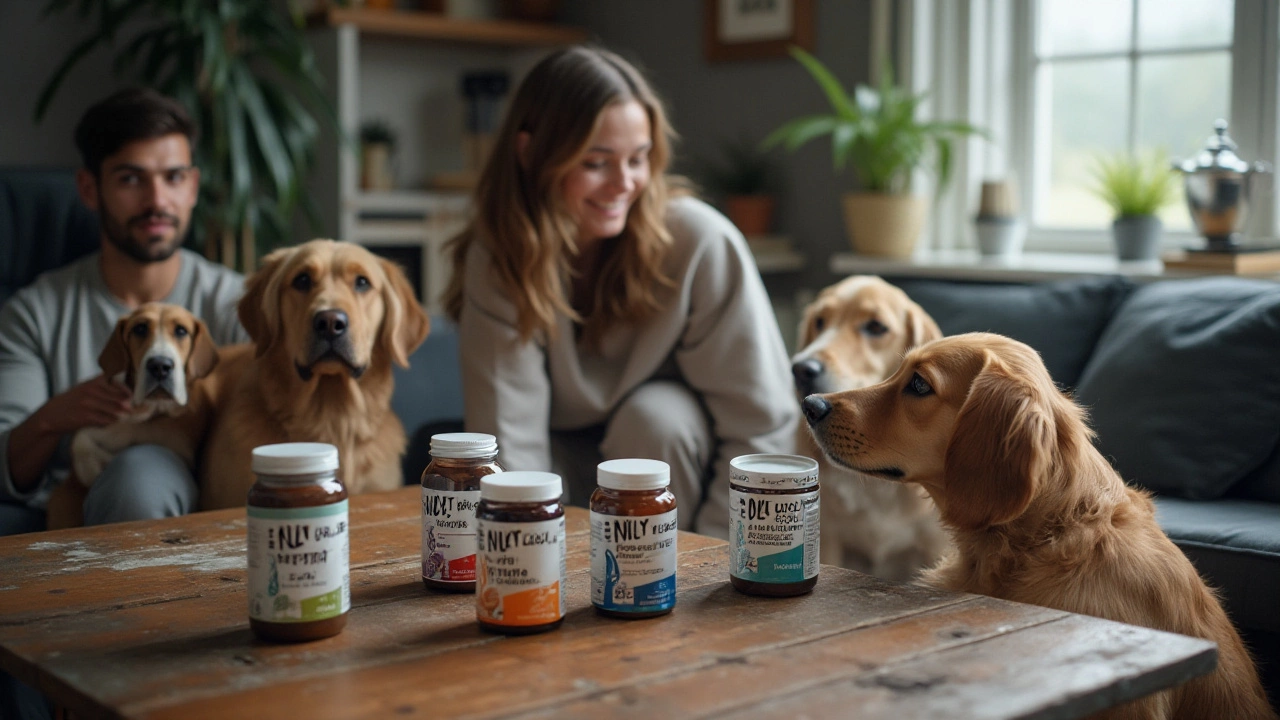Canine Supplements: Simple Guide to Safe, Effective Boosts
Ever wonder why your vet sometimes suggests a pill or powder for your dog? Even the best food can miss a few nutrients, especially for puppies, seniors, or dogs with special needs. Adding the right supplement can fill those gaps, keep joints moving, skin glowing, and energy steady. Below you’ll find plain‑talk advice on what to look for, how to choose, and how to use supplements without stress.
Why use canine supplements?
Most commercial dog foods aim to meet basic nutrition, but they don’t always cover everything a growing or aging dog needs. Joint health, coat shine, gut balance, and immune support often require extra help. Supplements give you a targeted way to boost what’s missing. They’re also useful after surgery, during pregnancy, or when a dog’s diet is limited because of allergies. A well‑chosen supplement can mean fewer vet visits and a happier pup.
How to pick the right supplement
Start with a vet check. A professional can point out any deficiencies and suggest the right type—glucosamine for joints, omega‑3 for skin, probiotics for digestion, or a multivitamin for overall health. Next, read the label. Look for “USP‑verified” or “non‑synthetic” ingredients and avoid added sugars, artificial colors, or fillers like corn gluten. Choose products that list the active ingredient first and give the exact dosage per pound of body weight. Finally, consider the form: chewable treats are easy to hide in food, powders mix into meals, and soft gels are quick to swallow.
When you first introduce a supplement, start with a small amount and watch for changes in appetite, stool, or behavior. If anything looks off, stop and call your vet. Most canine supplements work best when given consistently for at least a month, but you’ll see small improvements—less scratching, smoother walks, brighter eyes—much sooner.
Quality matters. Brands that source ingredients from farms you recognize and use third‑party testing usually deliver safer products. At Galloway Gourmet Dog Treats we craft treats with natural vitamins and minerals, so you can give a tasty snack that also supports health. Our canine‑friendly formulas avoid cheap fillers and contain only ingredients we’d feed our own dogs.
A quick tip: store supplements in a cool, dry place and keep the lid tight. Heat and humidity can break down vitamins, making them less effective. If you buy a large bottle, write the opening date on the label so you know when it’s been sitting too long.
Remember, supplements are a boost, not a replacement for balanced food. Keep feeding a high‑quality diet, stay active with daily walks, and use supplements to fill the gaps. With the right product and a bit of patience, you’ll see your dog feel stronger, look healthier, and enjoy life a little more.

Best Dog Supplements for Optimal Health and Well-being
Choosing the right supplement for your dog can significantly impact their health and longevity. This article explores various types of supplements available, their benefits, and tips for selecting the most suitable one for your furry companion. Dive into expert advice to ensure your dog is receiving the best care through proper nutrition and support. Discover how these supplements can help address specific health concerns and enhance your pet's overall quality of life.
View more
Daily Additions for Optimal Dog Health
Adding the right supplements to your dog's food daily can significantly improve their health and well-being. This article explores essential dog health supplements that can be easily incorporated into their diet to address common nutritional gaps. From omega-3s supporting joint and skin health to probiotics aiding digestion, these additions can make a noticeable difference. Learn practical tips and interesting facts to enhance your dog's daily nutrition safely and effectively.
View more